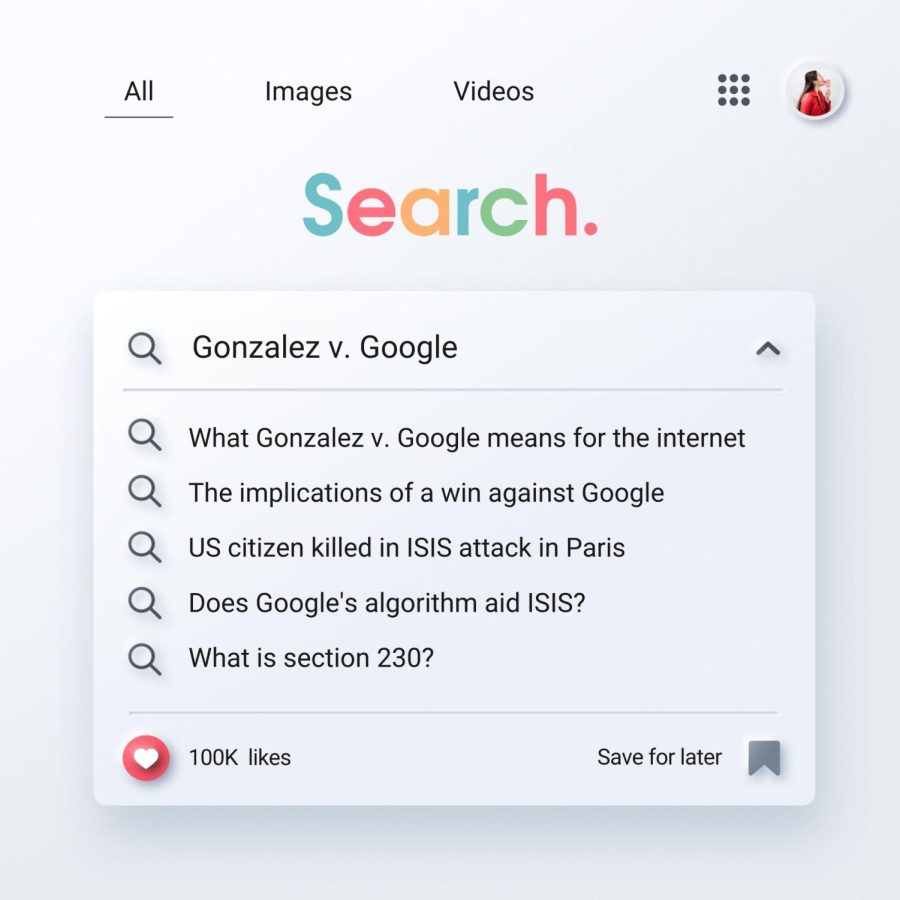What Gonzalez v. Google Means for the Internet
The implications of a win against Google
Gonzalez v. Google has the potential to bring major changes to the internet.
In Nov. 2015, Islamist extremist group ISIS carried out a series of coordinated attacks across Paris, killing 130 people and injuring 400 others. Nohemi Gonzalez, a US citizen, was among the victims killed in these attacks.
Gonzalez’s death was followed by a lawsuit from her family against Google under the Anti-Terrorism Act, which allows civil damage claims for aiding and abetting terrorism. The family claims that YouTube helped to aid ISIS’ recruitment efforts by recommending videos through its user-based algorithm.
The case is mainly concerned with the validity of section 230 of the Communications Decency Act of 1996. Section 230 states that interactive computer services are not the publishers or speakers of any information appearing on their platforms. This prevents companies such as Facebook and Twitter from being sued for the actions of an individual user on their sites.
Gonzalez’s family alleges that Google along with other social media companies were not simply providing platforms for communication, but instead were aiding ISIS by recommending their videos to those who appeared interested according to their algorithms. The family contends that this was done to increase viewership and ad revenue.
Plaintiffs in Gonzalez v. Google argues that Section 230 was created without the use of an algorithm in mind. This means that while websites are protected from being liable for third party content, their decision to use an algorithm to sort through content published on their sites and recommend content to certain users is not.
The case has reached the Supreme Court, which will determine if Section 230 protects companies from content pushed through algorithms. If it is determined that companies are held responsible for content in certain situations, Gonzalez’s family as well as many others will be able to sue companies such as Google for unlawful/illegitimate content published by third parties.
While lower courts have sided with Google, the Supreme Court is still undecided on a verdict. A ruling in favor of Gonzalez’s family could lead to social media companies having to completely rework their algorithms and act more cautiously with user content, which according to Google could restrict searches for jobs, restaurants, merchandise and other forms of content that are legitimate.
Gonzalez v. Google could have major consequences for the operation of the internet as a whole. If the case is ruled against Google, social media companies could be held responsible for third party content through a multitude of lawsuits.




